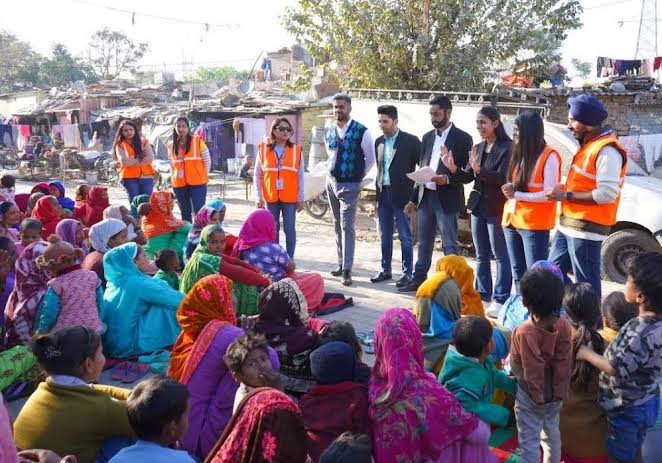NGOs (Non-Governmental Organizations) play a vital role in law by advocating for legal reforms, human rights, and social justice. They often provide legal aid to marginalized communities, raise awareness about legal issues, and monitor government compliance with laws. NGOs act as watchdogs, helping ensure transparency, accountability, and the protection of civil liberties. Here’s a breakdown of their involvement:
Access to Justice: NGOs aim to bridge the gap between vulnerable populations and the formal legal system. They ensure that those who cannot afford legal representation or face barriers in accessing justice receive the necessary support.
Legal Advice and Assistance: NGOs often have teams of lawyers and legal experts who offer free or low-cost legal advice and assistance. They help individuals understand their rights and navigate legal procedures.
Awareness and Education: NGOs conduct awareness campaigns and workshops to educate communities about their legal rights and responsibilities. This helps empower people to make informed decisions and seek legal redress when needed.
Advocacy for Legal Reforms: Many NGOs engage in policy advocacy and lobbying efforts to influence legal reforms and improve the legal framework in areas such as human rights, environmental protection, women’s rights, and more.
Providing Legal Aid to Vulnerable Groups: NGOs focus on assisting vulnerable and marginalized groups, including women, children, LGBTQ+ individuals, refugees, and the economically disadvantaged. They offer support in cases of domestic violence, discrimination, land disputes, and other legal issues.
Public Interest Litigation (PIL): Some NGOs engage in PIL, which is a legal action taken in the public interest to address issues of broader societal significance. They file PIL cases to bring about systemic changes and hold authorities accountable.
Monitoring and Reporting: NGOs often monitor human rights violations, environmental degradation, and other legal infractions. They document and report these violations to national and international bodies, raising awareness and seeking justice.
Legal Aid Clinics: Many NGOs run legal aid clinics where individuals can seek legal advice and assistance. These clinics are essential in rural and remote areas where legal services are scarce.
Collaboration with Legal Professionals: NGOs frequently collaborate with lawyers, law firms, and legal professionals who volunteer their time and expertise to provide legal services pro bono.
Funding Legal Cases: In some instances, NGOs provide financial support to individuals or communities to pursue legal cases that have broader societal implications. This can include cases related to environmental protection, human rights, or social justice.
Overall, NGOs in India are instrumental in promoting access to justice, protecting human rights, and advocating for legal reforms. They serve as a vital link between the legal system and those in need, striving to create a more equitable and just society.

